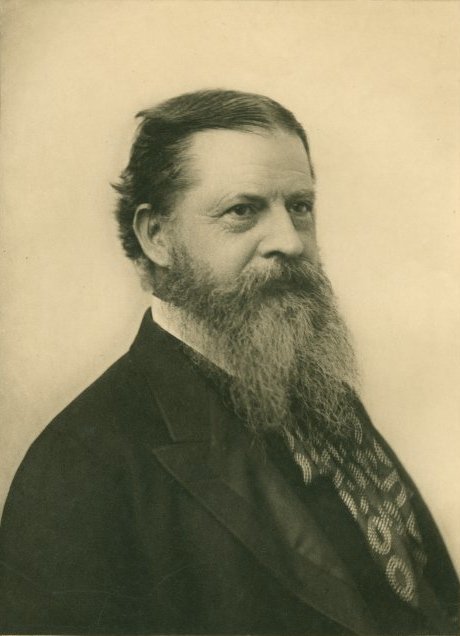Frases célebres de Charles Sanders Peirce
“Cada uno está plenamente convencido de la verdad, de lo contrario no haría ninguna pregunta.”
Fuente: En: Collected Papers, Vol. V, párr. 211)
“La idea no pertenece al alma; es el alma la que pertenece a la idea.”
Fuente: (Collected Papers, Vol. I, par. 216, 1931-1958).
Charles Sanders Peirce Frases y Citas
Fuente: "Esencia cristalina del hombre" en The monist, vol. III, N º 1 (octubre de 1892).
Máxima pragmática, publicada por primera vez en "Ilustraciones de la lógica de la ciencia".
Fuente: Popular Science Monthly, vol. 12 (Enero de 1878), p. 286.
Fuente: "The Century's Great Men in Science", en: The 19th Century: A Review of Progress During the Past One Hundred Years in the Chief Departments of Human Activity (1901), G. P. Putnam's Sons.
“No permitáis que pretendamos dudar en filosofía lo que no dudamos en nuestros corazones.”
Fuente: En: Collected Papers, Vol. V, par. 265
“No se puede bloquear el camino de la investigación.”
Fuente: En: Collected Papers, Vol. I, párr. 135)
“Todas las evoluciones que conocemos parten de lo vago para llegar a lo definido.”
Fuente: En: Collected Papers, Vol. VI, párr. 191)
Fuente: Philosophical Writings of Peirce http://books.google.es/books?id=ClSjXRIbxAMC&pg=PA6. Charles S. Peirce. Courier Dover Publications, 2011. ISBN 0-486-20217-8, pág. 6
Charles Sanders Peirce: Frases en inglés
The Law of Mind (1892)
Lecture II : The Universal Categories, §3. Laws: Nominalism, CP 5.59
Pragmatism and Pragmaticism (1903)
The Law of Mind (1892)
Fuente: A Neglected Argument for the Reality of God (1908), I
Vol. V, par. 211
Collected Papers (1931-1958)
“Mere imagination would indeed be mere trifling; only no imagination is mere.”
Vol. VI, par. 286
Collected Papers (1931-1958)
The Law of Mind (1892)
The Law of Mind (1892)
The Law of Mind (1892)
The Law of Mind (1892)
The Law of Mind (1892)
Lecture II : The Universal Categories, § 2 : Struggle, CP 5.53
Pragmatism and Pragmaticism (1903)
The Law of Mind (1892)
Fuente: A Neglected Argument for the Reality of God (1908), IV
“The idea does not belong to the soul; it is the soul that belongs to the idea.”
Vol. I, par. 216
Collected Papers (1931-1958)
The Architecture of Theories (1891)
The Law of Mind (1892)
The Law of Mind (1892)
On The Algebra of Logic (1885)
“All the evolution we know of proceeds from the vague to the definite.”
Vol. VI, par. 191
Collected Papers (1931-1958)
Lecture II : The Universal Categories, § 1 : Presentness, CP 5.41 - 42
Pragmatism and Pragmaticism (1903)
I, Ens necessarium is a latin expression which signifies "Necessary being, necessary entity"
A Neglected Argument for the Reality of God (1908)
Fuente: A Neglected Argument for the Reality of God (1908), V
Fuente: Mathematical Monads (1889), p. 268
Vol. I, par. 320
Collected Papers (1931-1958)
